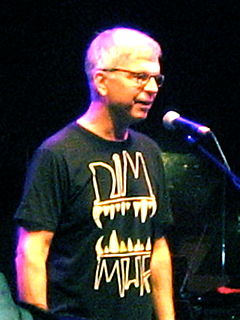A Quote by Ian Poulter
You don't want to let on how hurt you are because some people will see that as a sign of weakness, they might use it against you.
Related Quotes
I wish I'd known that apologizing is a sign of strength. I had the impression that if you apologize, it's a sign of weakness. I kind of picked up the message from my father, 'Real men don't apologize. You just do your best, and if you happen to hurt some people, that's their fault. You just go on. Don't apologize. That's a sign of weakness.'
I follow my instincts and I always think about what movie I would like to see. If I want to see it then I'm guessing that some other people might want to see it as well. I never try to think about what people will love or will like, because when you start to think for other people that's where you lose track of the real motivation.
I suppose the "dilemma" might come up if I see a black athlete from the U.S. squaring off against a white Canadian athlete. Who do I want to identify with? I certainly will not and cannot say that race determines how I see competition. I'm certainly aware of how race plays into the way others see and portray competition some times, but I don't have to invest in it that way myself. Unless it's boxing.
Trust in someone means that we no longer have to protect ourselves. We believe we will not be hurt or harmed by the other, at least not deliberately. We trust his or her good intentions, though we know we might be hurt by the way circumstances play out between us. We might say that hurt happens; it’s a given of life. Harm is inflicted; it’s a choice some people make.
If any sensual weakness arise, we are to yield all our sound forces to the overthrowing of so unnatural a rebellion; wherein how can we want courage, since we are to deal against so feeble an adversary, that in itself is nothing but weakness? Nay, we are to resolve that if reason direct it, we must do it, and if we must do it, we will do it; for to say "I cannot" is childish, and "I will not" is womanish.
In the deaf community, there are different types of people who have different philosophies. Some believe that they should only sign. Some believe they should only speak. Some people say you should use cued speech. Some say you should use cochlear implants. Some say you shouldn't sign. Some people say you should sign.
How many times in life can we make decisions that are important but will not hurt anyone? Are we obligated- maybe we are- to say yes to any choice when no one will be hurt? We use the word hurt when talking about things like this because when these things go wrong it can feel as if you were hit in the sternum by a huge animal that's run for miles just to strike you.
Every time I meet the CEO of a record label I tell them how they did it in the seventies because they want to know. I tell them, "Sign a hundred people! Throw it against the wall and see which ones stick!" And they frown and say, "Oh, we can't do that!" and they start mumbling about demographics and this and that.
When you see a struggle that you may be having personally put on a big screen and in a roomful of people, then it makes you feel less crazy or alone, because you're seeing that other people are dealing with it too. You get to see in this imaginary scenario how people might try and answer some questions or deal with some problems.
I still use the pronoun she for my publicity materials, and for mainstream media stuff, for two reasons: the first is that I do a lot of work in public schools, and I want those young women and girls to see every kind of she there can be. I want them to see my biceps and my shorn hair and shirt and tie and for some of them to see me as a possibilityI want them to see me living outside of the boxes, because they might be asphyxiating in their own box and need to see there is air out here for them to breathe, that all they have to do is lift the lid a little.





































